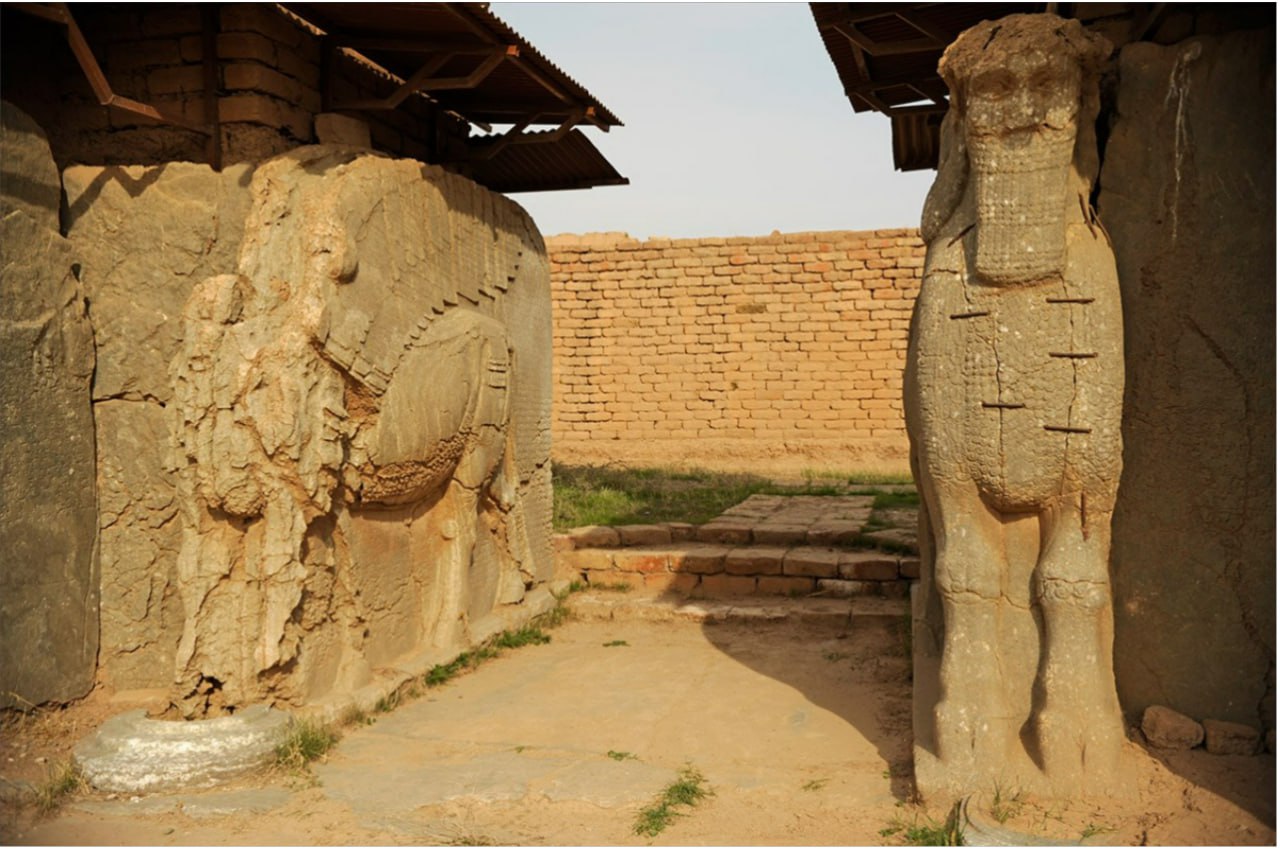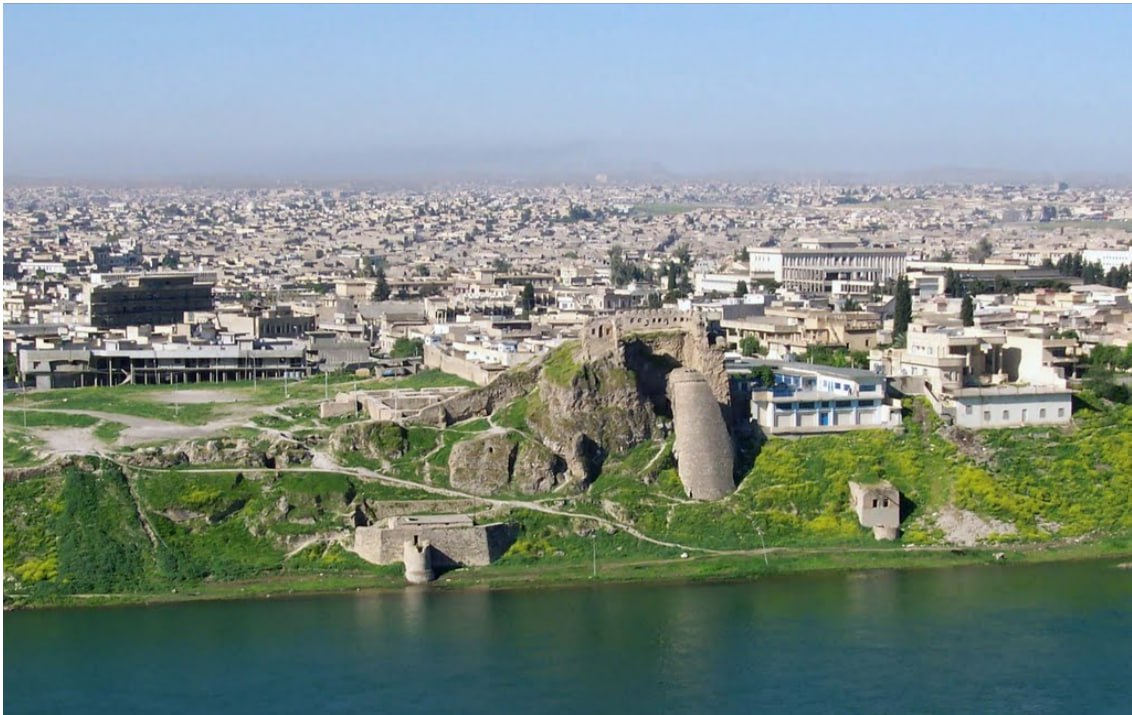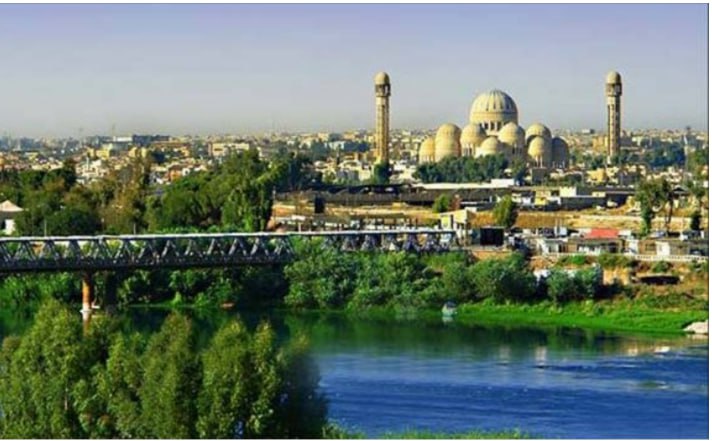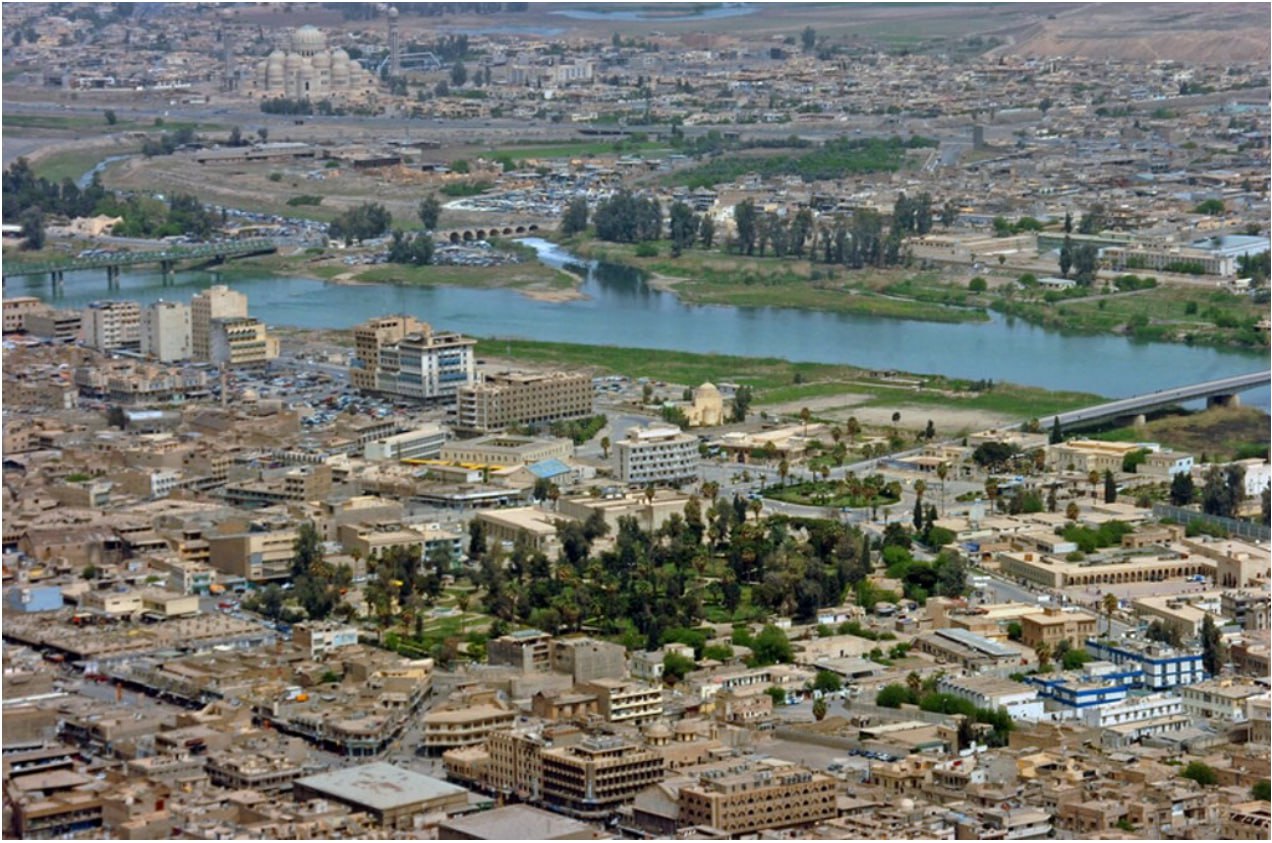1st International Conference on Newfangled Trends in Sustainable Technologies (NTST-2026)
NTST-2026 will be held in a hybrid format (in-person and virtual participation).
University of Mosul, Mosul, IRAQ (February 11-12, 2026)
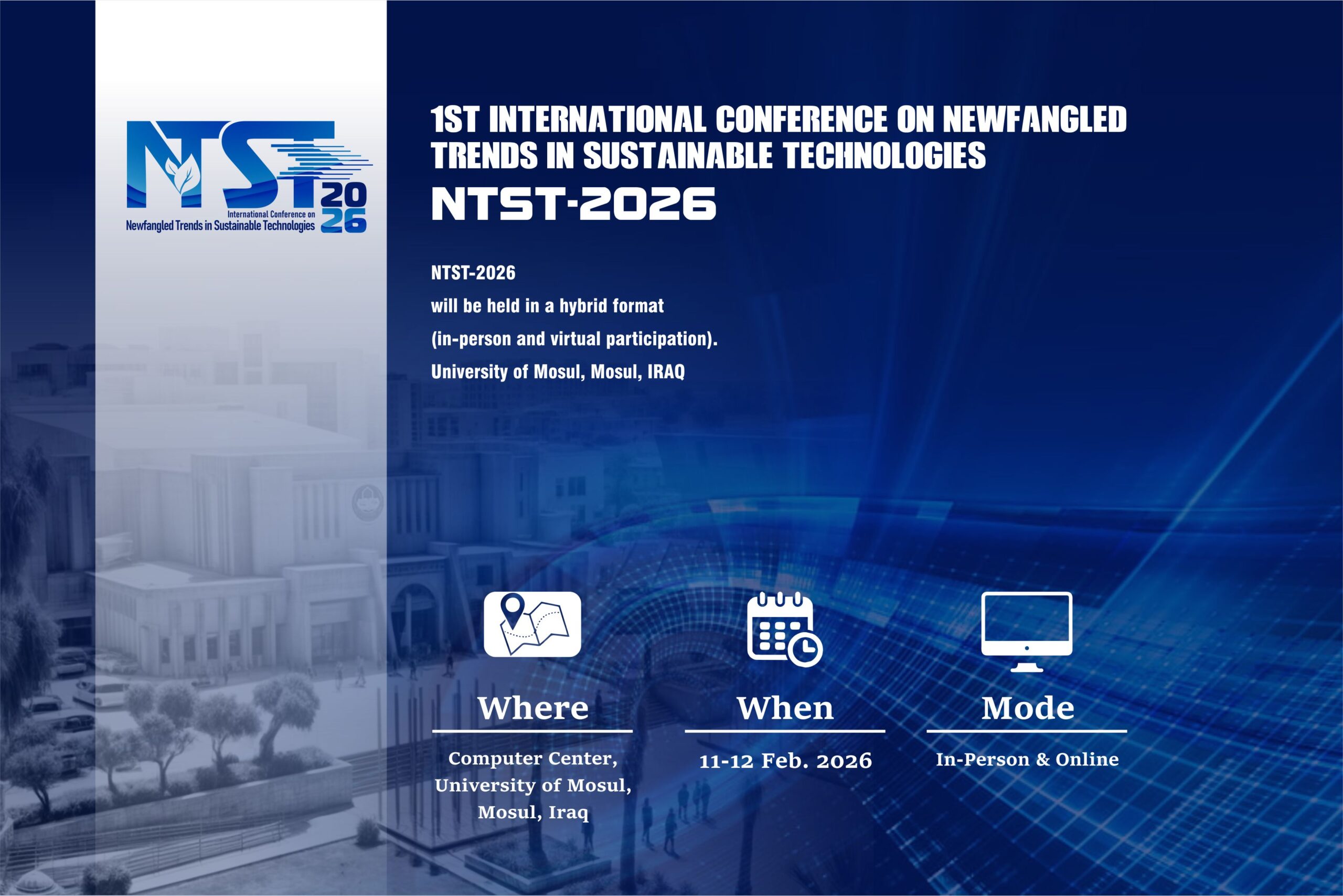
About NTST-2026
The 1st International Conference on Newfangled Trends in Sustainable Technologies (NTST 2026) gathers global scholars, researchers, and industry experts to explore cutting-edge advancements in technology. Our conference aims to foster collaboration, share innovative ideas, and discuss the latest trends and challenges across various science and engineering fields. Hosted by the University of Mosul-Iraq, NTST 2026 reflects our unwavering commitment to advancing education, research, and innovation. This conference is designed to provide a unique opportunity for participants to engage with leading minds from around the world, enhancing their understanding of sustainable technologies and their applications. By bringing together a diverse group of researchers and experts from both academic and industrial fields, we aim to inspire new ideas, promote interdisciplinary research, and drive global technological progress. Through keynote speeches and interactive sessions, participants will gain valuable insights into emerging technologies and sustainable solutions that can shape the future.
Conference Chairs
Honorable Chair:
- Prof. Dr. Waheed Mahmoud Al-Ibrahimi (University President)
Conference Chair:
- Prof. Dhuha Basheer Abdullah Albazaz (Dean of college of Computer Science and Mathematicse)
Co-Chairs:
- Mohammed Aldabagh, Ph.D. (University of Mosul, IRAQ)
- Basim Mahmood, Ph.D. (University of Mosul, IRAQ)
- Zohair Al-Ameen, Ph.D. (University of Mosul, IRAQ)
- Omar Ismael Al-Sanjary, Ph.D. (University of Mosul, IRAQ)
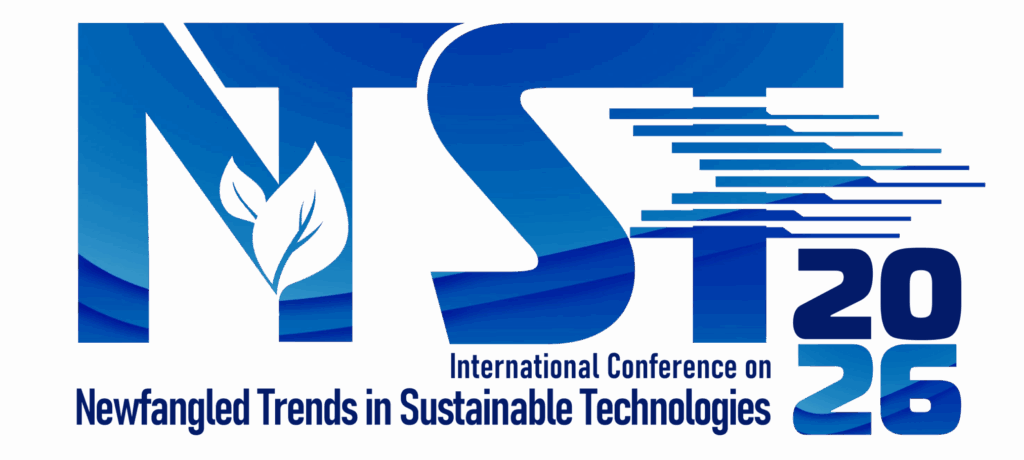
NTST-2026 Publication
- All accepted papers in NTST-2026 will be further sent to Springer Nature: Communications in Computer and Information Science (CCIS) for possible publication.
- For the papers that do not meet Springer standards, they will be sent to:
 Al-Rafidain Journal of Computer Sciences and Mathematics (CSMJ)
Al-Rafidain Journal of Computer Sciences and Mathematics (CSMJ) Al-Rafidain Engineering Journal (AREJ) for possible publication in a special issue for NTST-2026.
Al-Rafidain Engineering Journal (AREJ) for possible publication in a special issue for NTST-2026.
Important Dates
Submissions Start: 15/July/2025 Submission Deadline:
1/December/2025
(15/ December /2025)
Acceptance Notification: 1/January/2026
Camera Ready Deadline: 15/January/2026 Conference Dates: 11-12/February/2026Instructions for Authors
Submissions to NTST 2026 should be in a PDF format. Submissions will NOT be accepted by e-mail or any other mechanism other than (Microsoft CMT). Authors can even submit regular papers.
Templates
Manuscripts submitted to NTST 2026 should be original, written in English, and in accordance with the standard Springer 1-column paper template (10-page technical content + 2-page references for regular papers and 4-page technical content + 2-page references for demo papers); Papers must be in trouble-free, high-resolution PDF format, formatted for US Letter (8.5″ x 11″) paper, using Type 1 or TrueType fonts. NTST 2026 uses double-blind review for regular papers. Therefore, submissions are anonymous and must conform to the instructions for double-blind review. The authors must manually remove all author and affiliation information from their submission for review and may replace it with other information, such as paper number and keywords. Submissions may be an ethics statement if applicable; acknowledgments also should be omitted from papers submitted for review but may be included in these two additional pages for accepted papers.
Only PDF files are required at the time of submission for review; you will additionally need to submit paper source files if your paper is accepted for publication.
You can download the template for NTST 2026 here: Word LaTex
Citation and Comparison
Papers are expected to cite those refereed publications most relevant to their content, but authors are excused for not knowing about all non-refereed work (e.g., appearing on ArXiv). Nevertheless, in cases where such prior work is widely known in the field, its existence may be considered by reviewers when assessing a submission’s novelty.
Technical Appendix
The length of main submissions is strictly limited, as already described. Authors may optionally submit a technical appendix (PDF) containing additional supporting information such as proofs of theorems that are stated in the main paper, additional information needed to reproduce experiments, further experimental results, figures, and examples to illustrate technical claims, etc. The main submission may reference the supplementary material but should be self-contained. Reviewers will be instructed to make their acceptance evaluations based on the main submission and will not be obliged to consult the supplementary material. If proofs or other supplementary matters are an important part of the contribution, their essential elements should be included in the main paper.
AI Policy for NTST 2026 Submissions
NTST 2026 strictly adheres to an AI policy for conference submissions. Manuscripts submitted should contain at most 25% AI-generated content. This policy ensures the originality and integrity of the research presented. Submissions must be within this threshold to be accepted. We encourage authors to maintain high standards of scholarly work by relying primarily on their expertise and insights.
Reproducibility Guidelines
Authors must complete a reproducibility checklist at the time of paper submission. These responses will become part of each paper submission and will be shared with reviewers. Information related to reproducing experimental results described in the submission may be included in the main paper or the Code and Data Appendix, as appropriate. Further technical details (proofs, descriptions of assumptions, algorithm pseudocode) may be included in the Technical Appendix. When applicable, authors are encouraged to include detailed information about each reproducibility criterion as part of their Technical Appendix. Reviewers will be asked to assess the degree to which the results reported in a paper are reproducible, and this assessment will be weighed when making final decisions about each paper.
Ethics Policy
All NTST 2026 authors and reviewers are required to honor the Springer Publications Ethics and Malpractice Statement, as well as the Springer Code of Professional Conduct.
Conference Registration and Attendance
For each submitted paper, at least one author is required to register for the conference and to present the paper. Details about the conference attendance will be posted on the NTST 2026 website (https://ntst.uomosul.edu.iq).
Rights
The License to publish proceedings papers is shown in the license file. The templates for Spring are also provided: Latex and Word.
Fees & Payment
Fees
Academic Registration: 150,000 IQD
For Student Registration: 75, 000 IQD
Listener: 25,000 IQD
Payment Method
The fees can be paid using the following methods:
Manuscript Submission Checklist (for authors)
Before you submit your manuscript, please consider the following:
- Each author must have an account on Microsoft CMT, which is a free Microsoft conference system.
- The review manuscript must be in a (.pdf) file format.
- The review manuscript must be formatted strictly according to Springer templates.
- The review manuscript must not exceed the specified page limits.
- Authors’ information, including names, emails, and affiliations, must not be included in the review manuscript.
- The manuscript must be written in clear and fluent English.
- AI-generated content in the manuscript must not exceed 25%; otherwise, the manuscript will be rejected.
- Text similarity must not exceed 20%; otherwise, the manuscript will be rejected.
- All figures, tables, and references must be appropriately referenced within the manuscript.
- All included figures must be clear and of high resolution.
Conference Tracks
Track 1: Sustainable Technologies
AI, machine learning, IoT, and advanced simulations for optimizing sustainable systems, predictive maintenance in renewable energy, and automation in eco-friendly manufacturing.
Track 2: Signal Processing and Multimedia
Image and video processing, audio and speech processing, medical signal processing, machine learning in signal processing, multimedia systems, and secure multimedia systems.
Track 3: Intelligent Applications
Machine learning, deep learning, and neural networks, robotics and automation, IoT applications, decision support systems, cognitive computing, ethical AI.
Track 4: Mechatronics, Electrical, and Electronics Engineering
Control systems, power systems and smart grids, electronics design, robotics and autonomous Systems, sensors and actuators, biomedical devices.
Track 5: Statistics and Mathematics
Statistical modeling, computational mathematics, mathematical physics, data analysis, operations research, cryptography and mathematics.
Track 6: Computer Forensics
Digital evidence analysis, network forensics, mobile forensics, intrusion detection, cryptography, steganography, Encryption, firewalls, secure protocols, malware analysis, blockchain, forensic tools and frameworks, legal and ethical issues, and all cybersecurity-related topics.
Track 7: Communication and Networking
Wireless and mobile Networks (5G/6G technologies, ad hoc networks, and mobile communication), network security, IoT networking, optical and satellite communication, cloud and edge computing networks, Software-Defined Networking (SDN).
Track 8: Software Engineering and Information Systems
Agile and DevOps methodologies, softwarequality assurance, Human-Computer Interaction (HCI), enterprise information systems, cybersecurity in software development, data and knowledge management.
Accomodation
We recommend the following hotels in Mosul city:
- Ewan Hotel
- Royal City Hotel
- Al Baron Hotel
- Modern Palace Hotel
For more information contact the logistic and support:
Mr. Yamman Huthaifa (07701624787)
Mr. Sabhan Ahmed (07510145132)
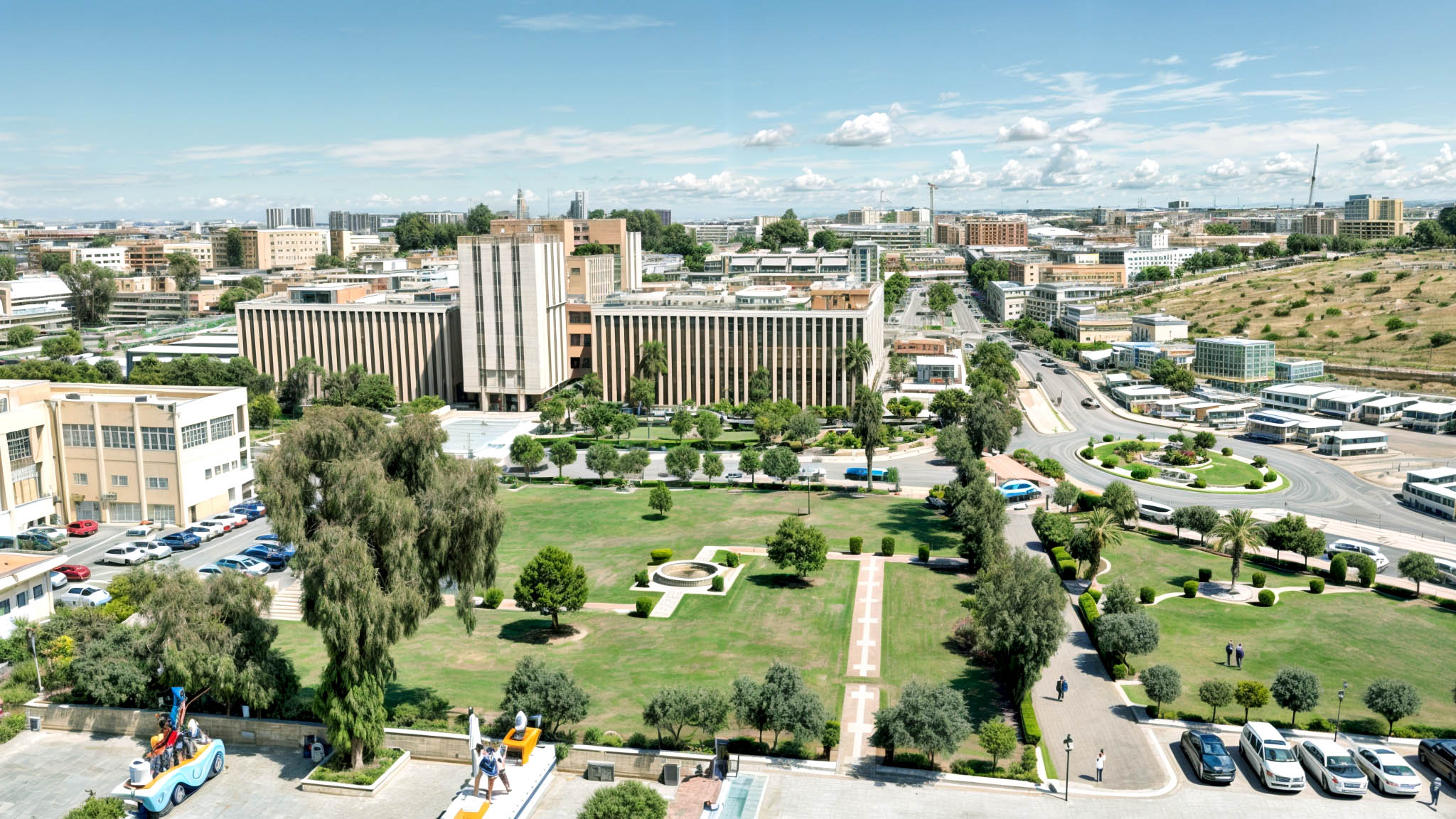
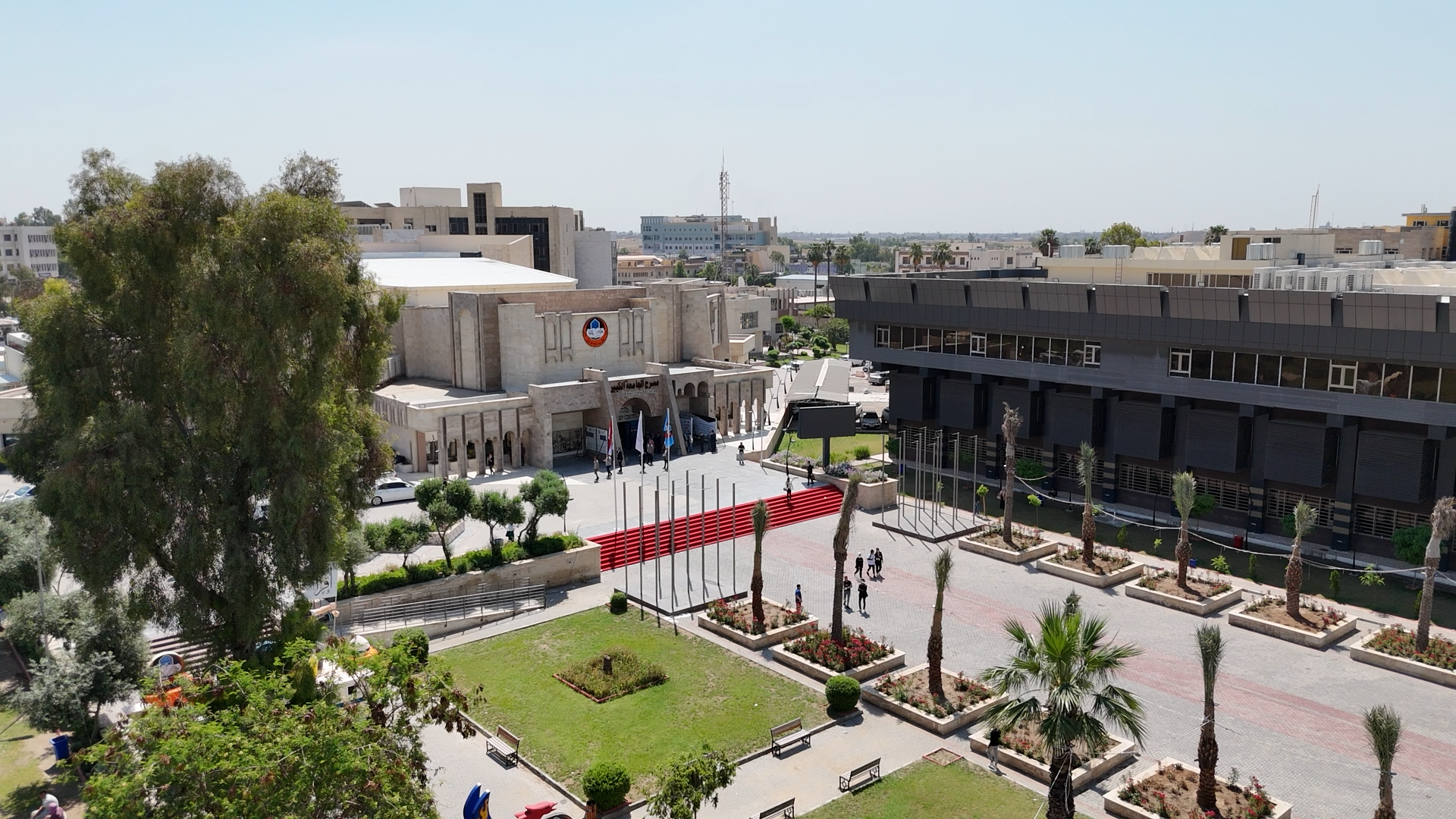
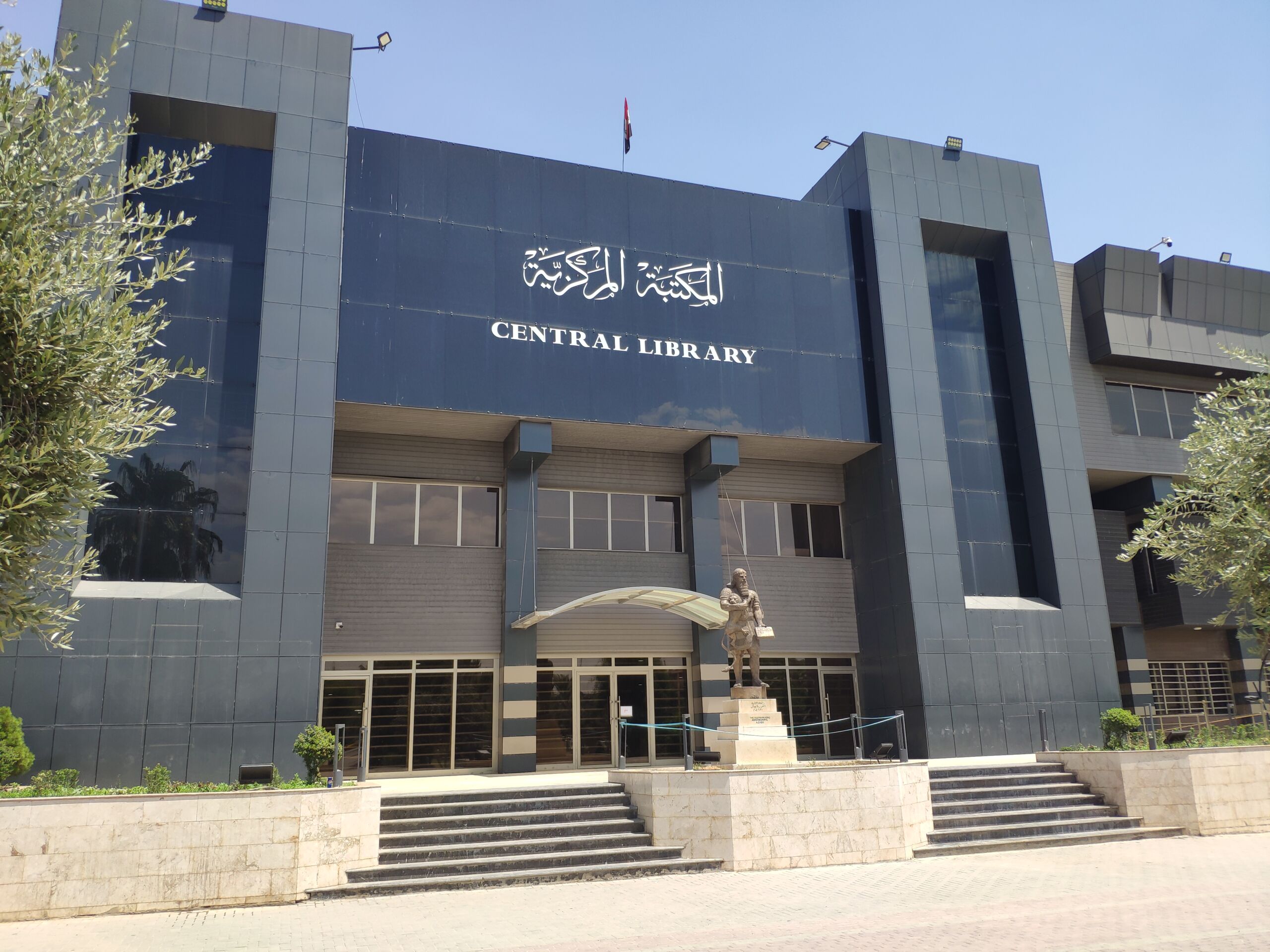
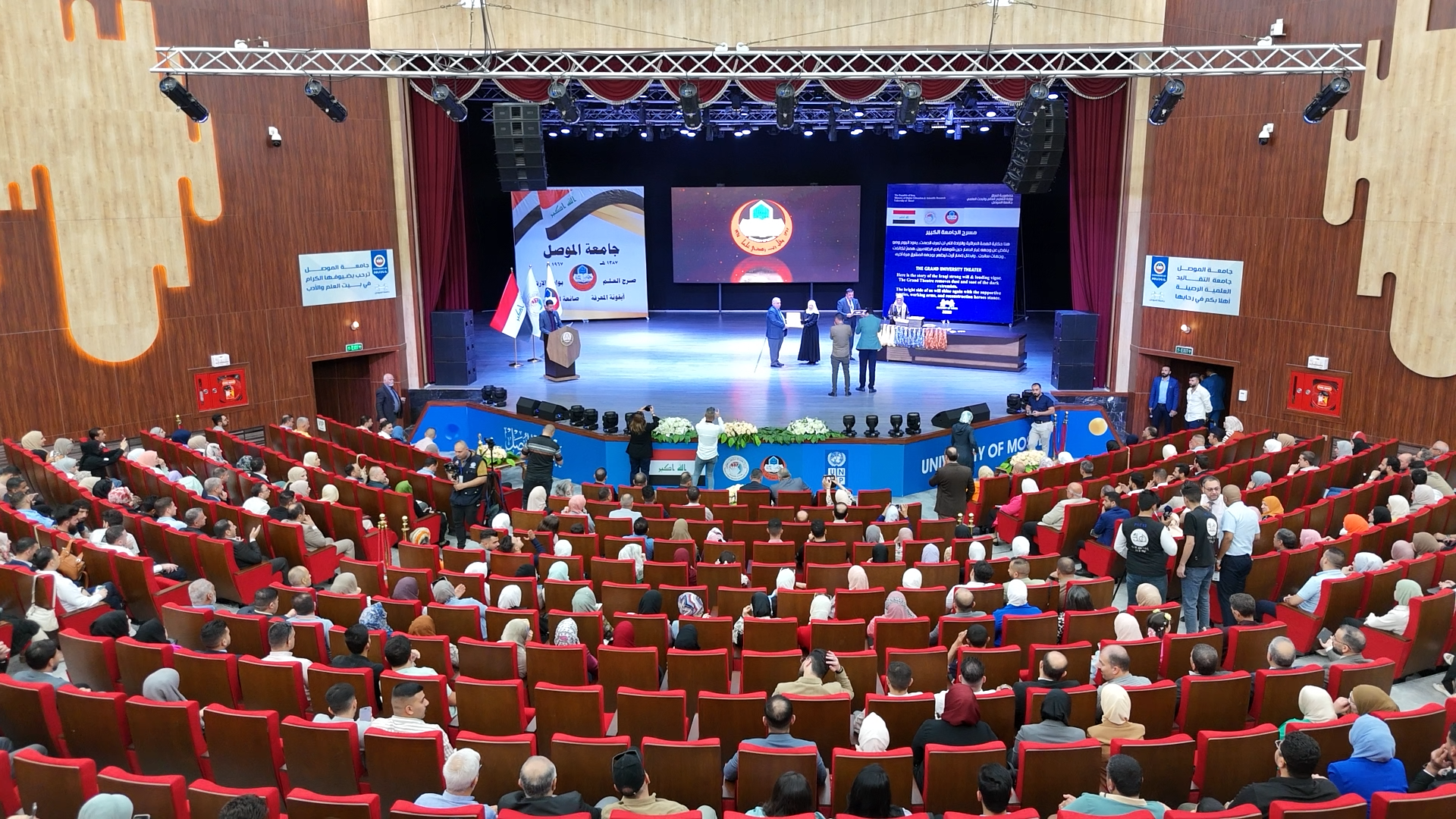
University of Mosul
University of Mosul is one of the most important pillars of higher education and scientific research in Iraq. With its scientific and cultural activities and events, it belongs to the republic system of higher education and scientific research with respect to all regulations, laws and instructions. Its steps are inspired by and based on deliberate plans to be a beacon that illuminates the path of science and education. Today, it promotes 24 colleges and 8 research and education centers, including a research center for medical specialisms, consulting offices, specialized teaching hospitals, mobile clinics and scientific journals that occupy advanced entries in the internationally recognized indexes like Scopus. As well, the museums, theaters, Central Library and other libraries, service and cultural facilities that provide incessant services to the people and its community are but an expression of its motto, that it is in the service of society. To keep pace and up-to-date with the latest global developments, it took serious measurements, working with international partners on major global concerns through various programmes, including sustainable development projects, urgent works to reduce emissions in order to overcome climate change and many others. Hence, to popularize its scientific achievements and to inform the world of its due position among the major international academic and research institutions, University of Mosul launches its new website in a modern form with certain specifications to be a window that allows the world to see its continuing proud and prestigious march since its establishment in 1967, all through the eras that followed, which were undoubtedly full of drastic changes, transformations and challenges, to be what it is like now.
University Rector
Mosul City
Mosul is a major city in northern Iraq, serving as the capital of Nineveh Governorate. The city is considered the second-largest city in Iraq in terms of population and area after the capital Baghdad. Mosul is approximately 400 km north of Baghdad on the Tigris river.
